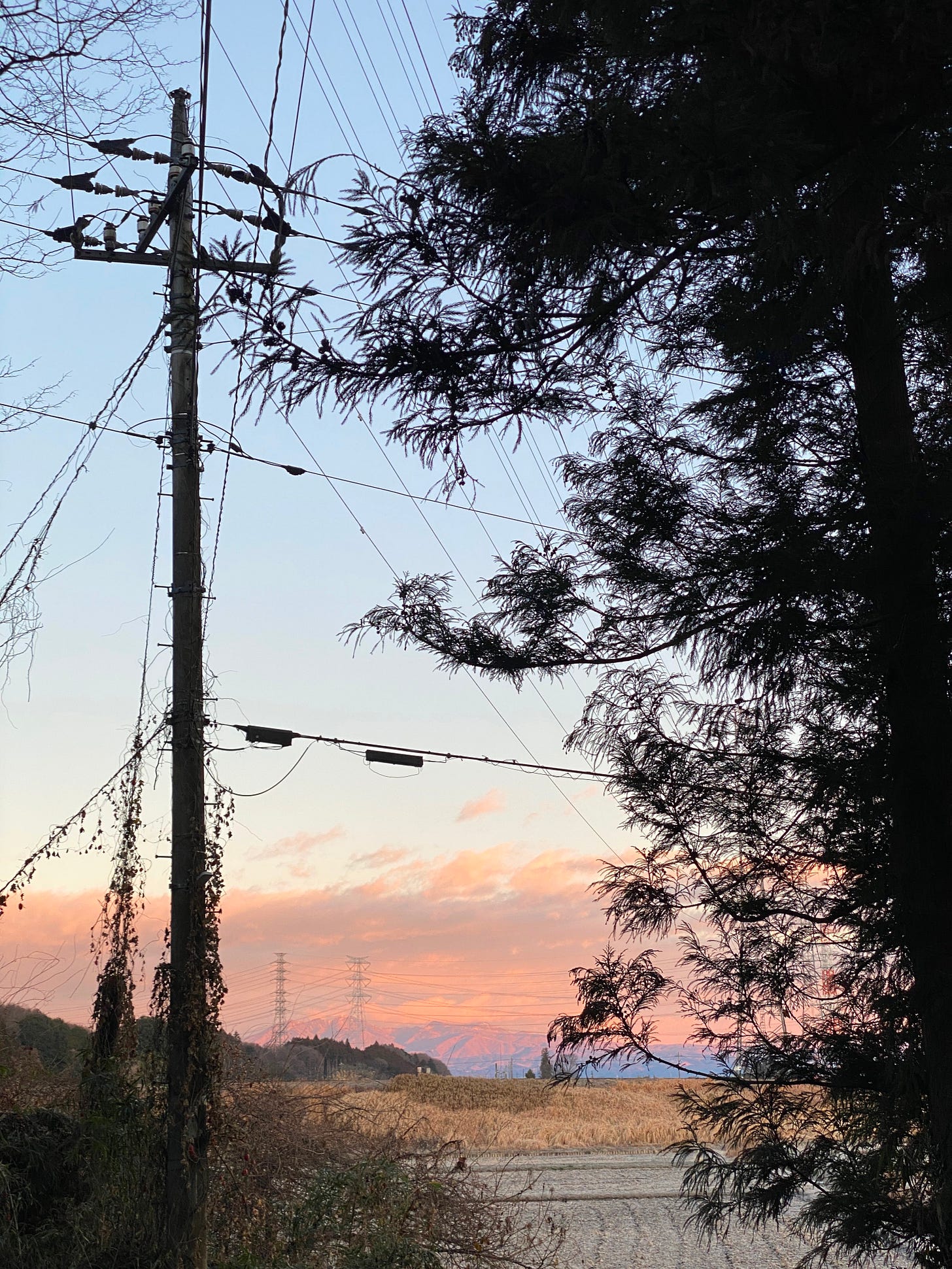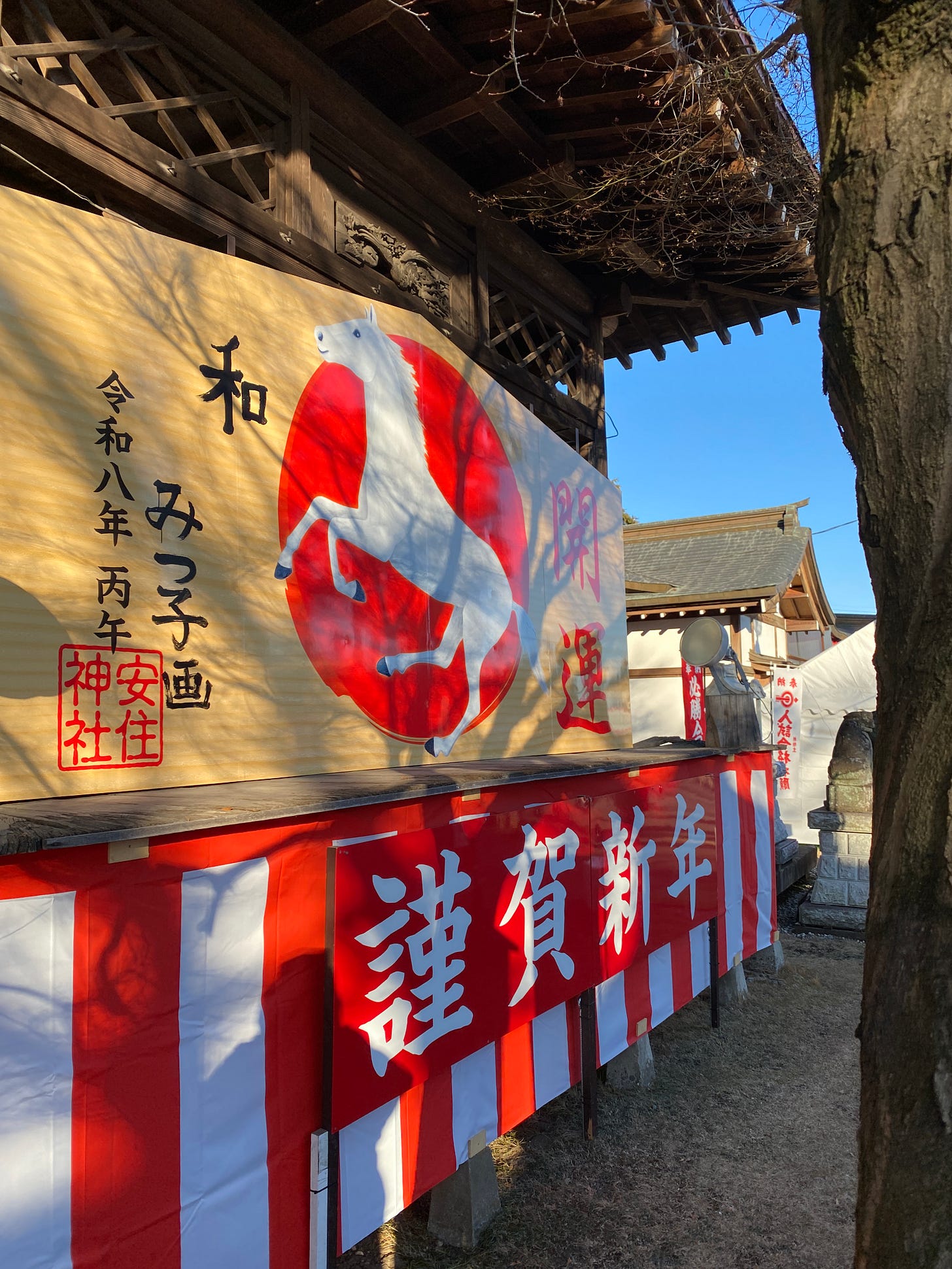Greetings from the near edge of the end of the semester where I am entrenched behind my desk with a vending machine’s worth of bottled water and enough vitamin C that even the citrus fruits are apeeling1 to my better nature. I’m only at work today because it’s what I do. Work.
I am a middle-aged dad. And just like every middle-aged dad you know, I have a very hard time figuring out what I’m supposed to do with myself when I’m not working. Thus my hobbies become side hustles, family time becomes a checkbox on a to do list, and ‘downtime’ remains something elusive and undefined that I can only pretend to understand.
But, if you don’t schedule time to shut down your tools, your tools will do it for you. In this case, my tool is my voice, and it has shut itself down via a nice little head cold that came out of nowhere and walloped me upside the head. And thus, I am growling at my students, my family, my dog, and that blessed idiot always drooling at me from the other side of the mirror.
So I have a ritual of sorts. Whenever I get the slightest bit sick, I drop everything that can be dropped and schedule some downtime. And yes, I know that, optimally, I would schedule this downtime before I get sick, but hey, it is what it is. And what it is right now, for this iteration of downtime, is reading. A lot.
I spent one summer of my childhood at my grandmother’s house in Oklahoma. While there, hanging out with my cousins and watching day time t.v., I read through her bookshelves, bouncing between Louis L’amor westerns and Lillian Jackson Braun mysteries like a pinball on a bonus run.
Of the two, I preferred the mysteries for one simple reason - they felt like a reality I could still step into. The westerns were the past. The wagon trains, the cattle drives, the Pony Express, all things of the past. But a newsman going from one beat to the next, getting to know colorful characters and solving mysteries? Sure, I could inhabit that world tomorrow!
Of course, by the time I was grown, that world, the world of the three-issues per day and supplement on weekends newspaper was already starting to disappear. In 1993, I made the wise decision to major in broadcasting rather than journalism because, surely, the technology behind radio and t.v. would be relevant for decades to come! Among the many dubious skills on my resume are the ability to manually slice reel-to-reel tape and use a chemical darkroom to process negatives and prints.
All of this is to say that most of my life, I’ve been optimistically looking forward while also pining for a past that I was never really a part of. I learned newspaper, radio, t.v., film, and even advertising techniques designed for a pre-digital world. And though I have tried to keep up, well, there’s a fool’s errand if ever there was one. So that drooling idiot in the mirror might decide to learn how to use his phone to do short video, but this guy ain’t.

Back in the here and now, I recently started a re-read, my first in 30-something years, of The Cat Who Could Read Backwards, the first of those Lillian Jackson Braun books. This book was first published in 1966, almost a decade before I was born and yet, it sounds like a lovely time. Our man Qwilleran, Qwill to his friends, gets assigned the art beat in a mid-sized city in the midwest. Mysterious shenanigans ensue. Cats are introduced and become the lynchpin of the entire 29 book series. If you’ve never read it, I can wholeheartedly recommend it with the caveat that it’ll make you nostalgic in the worst way.
Also, it turns out there is a word for this feeling: anemoia. This is a word coined and defined (I believe) by the always relevant minds at The Dictionary of Obscure Sorrows2: a feeling of nostalgia for a time you never experienced.
Or, to put it another way, via the incomparable Grandpa Simpson:
You know, you remind of a poem I can’t remember, and a song that may never have existed, and a place I’m not sure I’ve ever been to.
Man I would love Qwill’s life. Go to the newspaper building, see your buddies, buy someone lunch on the paper’s dime in pursuit of a story, file your copy, have dinner at the reporter’s club across the street, go home, read the evening paper while smoking a pipe, and go to bed. Hell, I’d even put up with a Siamese cat if it came with that lifestyle.
The thing about anemoia is that it is the most rose-tinted of lenses through which you can look. Sure, the lifestyle described above is absurdly engaging. But, Qwill isn’t married, doesn’t have kids, can’t stay in one place too long, and will probably drop dead in his early 60s because of smoke and a red meat diet3.
And that’s not even talking about the fact that the mid-60s had all kinds of social injustices, political assassinations, wars in foreign lands, a rapidly changing world economy, and generational changes in media and culture we still have not quite recovered from.
What this means then, is that, as readers, we have to expect and welcome those feelings of anemoia when they arise so that we can examine them for the truths under the surface. In this case, when I read about Qwill and his 60s newspaper man lifestyle, what I’m actually ‘missing’ is a slower pace of life where information came in discrete waves with downtime forced on you by the delivery mechanisms. Of a media diet defined by a rhythm of reporting-interpreting-commenting at slow, regular intervals rather than a firehose we are unable or unwilling to turn off. And sure, this might be a bit Ok-Boomer or, for an even older reference, Pollyanna-ish but broken clocks, you know?
So, that’s what I get to do now. I get to take my vitamin C, my antihystamines, my bottles of water, and turn the world off for a bit. I’m sure it’ll still be here when I’m back on my feet. Even if it’s not, my grading sure as hell will be. Be well, turn off the news, go to bed.
Don’t you run. You stand there and take your pun-ishment like the wretch you are.
The Dictionary is a great way to decide who you want to be friends with. Use a word from it and when someone tells you that that isn’t a word, use the book to beat them about the head and shoulders until they understand that they are not your kind of people.
I know, you’re saying, “There are worse ways to go!” and you’re not wrong, but you’ve still got those rose-colored glasses on.










